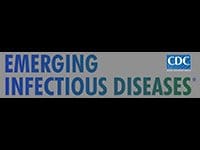Abstract
The 2014–2016 Ebola virus disease (Ebola) epidemic in West Africa underscores the need for health care infection prevention and control (IPC) practices to be implemented properly and consistently to interrupt transmission of pathogens in health care settings to patients and health care workers. Training and assessing IPC practices in general health care facilities not designated as Ebola treatment units or centers became a priority for CDC as the number of Ebola virus transmissions among health care workers in West Africa began to affect the West African health care system and increasingly more persons became infected. CDC and partners developed policies, procedures, and training materials tailored to the affected countries. Safety training courses were also provided to U.S. health care workers intending to work with Ebola patients in West Africa. As the Ebola epidemic continued in West Africa, the possibility that patients with Ebola could be identified and treated in the United States became more realistic. In response, CDC, other federal components (e.g., Office of the Assistant Secretary for Preparedness and Response) and public health partners focused on health care worker training and preparedness for U.S. health care facilities. CDC used the input from these partners to develop guidelines on IPC for hospitalized patients with known or suspected Ebola, which was updated based on feedback from partners who provided care for Ebola patients in the United States. Strengthening and sustaining IPC helps health care systems be better prepared to prevent and respond to current and future infectious disease threats.
The activities summarized in this report would not have been possible without collaboration with many U.S. and international partners (http://www.cdc.gov/vhf/ebola/outbreaks/2014-west-africa/partners.html).
Morbidity and Mortality Weekly Report. 2016;65(3):50-56. © 2016 Centers for Disease Control and Prevention (CDC)







